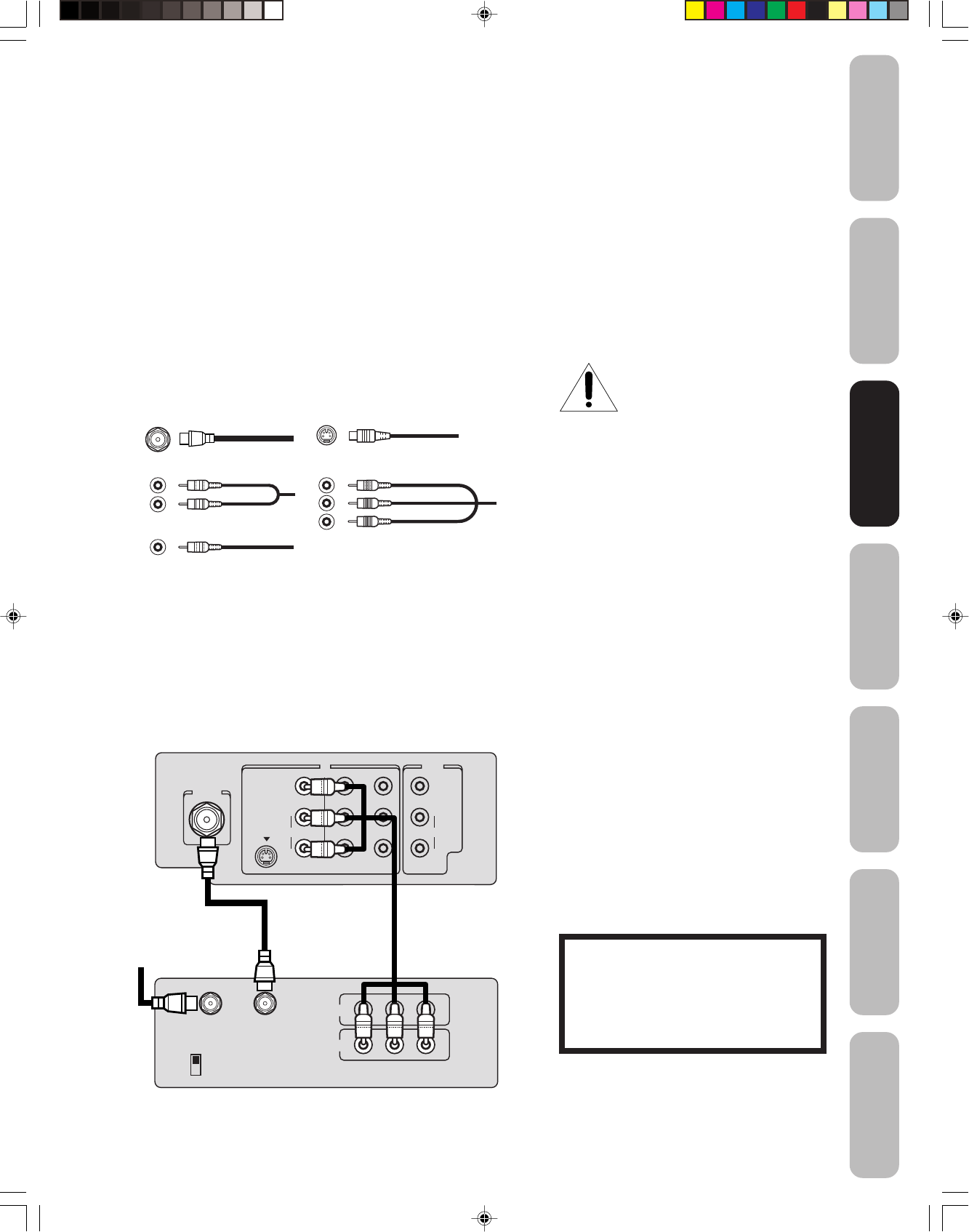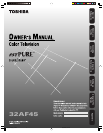
7
Appendix
Using the TV’s
Features
Setting up
your TV
Using the
Remote Control
Connecting
your TV
Welcome to
Toshiba
Important
Safeguards
IN
OUT
VIDEO
IN from ANT
CH 3
CH 4
OUT to TV
AUDIO
LR
VIDEO
Y
P
B
P
R
AUDIO
L/MONO
R
VIDEO
IN OUT
ANT (75Ω)
VIDEO 1 VIDEO 2
AUDIOS-VIDEO
L/MONO
R
NOTICE: RISK OF
EQUIPMENT DAMAGE!
Do not plug in any power cords
until you have finished connecting
all equipment.
You will need:
• two coaxial cables
• one set of standard A/V cables
Note:
If using a mono VCR, connect L/Mono to
VCR Audio OUT using only one audio cable.
For better picture quality, if your VCR has S-
video, you can use an S-video cable instead
of the standard video cable. Do not connect a
standard video cable and an S-video cable to
VIDEO1 simultaneously.
Connecting a VCR
This connection allows you to watch local channels and video programs,
play or record on the VCR while watching TV, and record from one
channel while watching another channel.
Connecting
your TV
Connecting your TV
• A coaxial cable is the standard cable that comes in from your
antenna or cable converter box. Coaxial cables use “F” connectors.
• Standard A/V (audio/video) cables are usually color coded accord-
ing to use: yellow for video and red and white for audio. The red
audio cable is for the stereo right channel, and the white audio
cable is for the stereo left (or mono) channel. If you look at the rear
panel of the TV, you will see that the terminals are color coded in
the same manner as the cables.
• An S-video cable provides better picture performance than a
standard video cable. S-video cables can only be used with S-video
compatible components.
• Component video cables come in sets of three and provide the best
picture performance. Component video cables can only be used
with component video compatible components.
Cable Lead-in
from cable box
or antenna
TV
Stereo VCR
ANTENNA
Coaxial Cable
S-Video
Cable
AUDIO
Cables
VIDEO
Cable
Component video
Cables
The unauthorized recording, use, distribu-
tion or revision of television programs,
videotapes, DVDs, and other materials is
prohibited under the Copyright Laws of the
United States and other countries, and may
subject you to civil and criminal liability.
J3S90121A(E)_P07-16 9/03/2005, 5:57 PM7


















